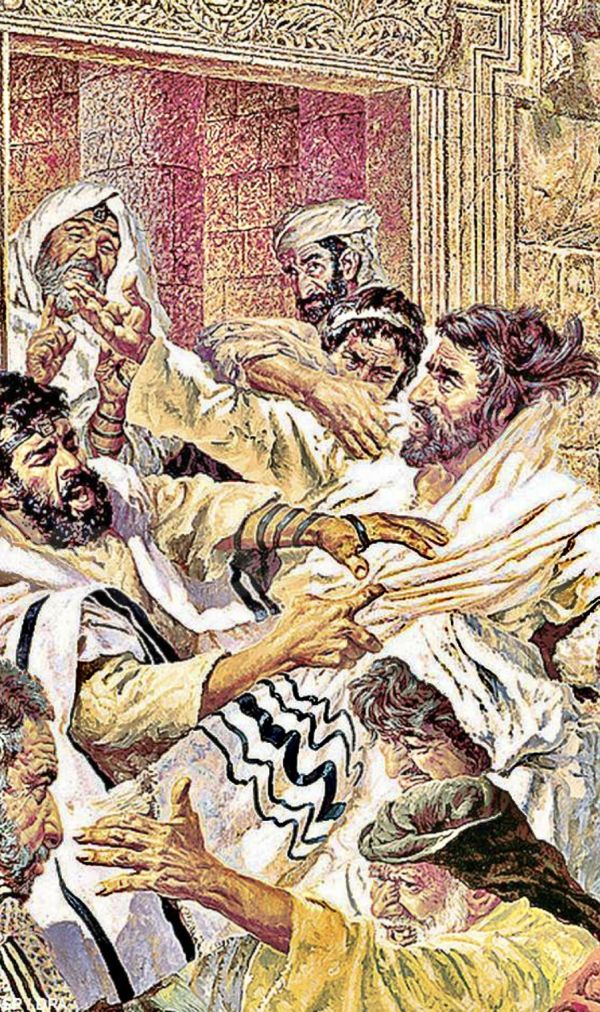Two Names of God
(Lk 4:24-30)
Jesus is annoying and generates suspicion in those who love external schemes, because he proclaims only Jubilee, rather than harsh confrontation and revenge.
In the synagogue, his ‘village’ is perplexed by this overly understanding love - just what we need.
The place of worship is where less aware believers have been educated in reverse!
Their grumpy character is the sour fruit of a pounding religiosity, which denies the right to express ideas and feelings.
The "synagogal" code has produced fake faithfuls, conditioned by a disharmonious and split personality.
Even today and from an early age, that intimate laceration manifests itself in the excess of control over openness to others.
Consequence: an accentuation of youth uncertainty - under which who knows what hatches - and a rigid adult character.
In short, the hammering that does not make the leap of Faith blocks us, prevents from understanding, and pollutes all of life.
Even in the time of Jesus, archaic teaching sharpened nationalisms, the very perception of trauma or violations, and paradoxically precisely the caged situations from which one wanted to escape.
Exclusive spirituality: it’s empty - whether crude or sophisticated.
Selective thinking is the worst disease of worldviews, which are then always telling us ‘how we should be’.
Faced with edgy convictions and conventicular illusions, the Prophet marks distance; he works to spread awareness, not reassuring images - nor disembodied ideas.
But the critical heralds violently irritate the crowd of regulars, who suddenly pass from a sort of curiosity to vengeful indignation.
As in the village, so - we read in watermark - in the Holy City [Mount Sion], from which they immediately want to throw you down (Lk 4:29). Wherever you talk about a real person and eternal dreams.
In the hostility that surrounds them, the intimates of the Lord openly challenge the normalized beliefs - acquired from the environment and not reworked.
For them it’s not only the analogy calculated to a petty side dish that counts. They see other goals and don't just want to “get there”.
If they are overwhelmed, they leave behind that trail of intuitions that sooner or later will make everyone reflect.
Therefore in his Friends it is the Risen who escapes from death and resumes the journey, crossing those who want to kill him (v.30).
At all times, the witnesses make us think: they do not seek compliments and pleasant results, but recover ‘opposite sides’ and accept the happiness of others.
They know that Uniqueness must run its course: it will be wealth for everyone, and on this point they do not allow themselves to be inhibited.
Based on the Father's personal experience, the inspired faithfuls value different approaches.
They create an unknown esteem, advocating new attitudes - different ways of relating to God.
Not, to add proselytes and consider themselves indispensable.
Even if «at home» (v.24: own townspeople, own country) they are uncomfortable characters for the ratified mentality, the nobody-Prophets make Jesus' Personalism survive, snatching it from those who want it to be dormant and kidnapped.
Like him, at the risk of unpopularity and without begging for approval.
With the scars of what has gone away, for a new Journey.
[Monday 3rd wk. in Lent, March 24, 2025]












